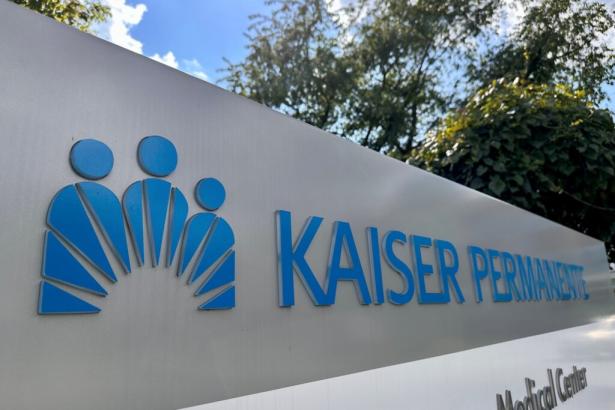labor Kaiser Permanente Workers in D.C., VA Go on Strike; MD Union Members To Begin ‘Informational Picketing’
Thousands of Kaiser Permanente workers across the United States began a strike against contract negotiations that strikers say are not being done “in good faith” and fail to adequately address the “unsafe staffing levels” within the major medical organization.
The contracts for several thousand Kaiser Permanente workers expired Sunday evening, including contracts for about 400 pharmacists and optometrists out of Virginia and Washington, D.C., kicking off the nationwide strike of Kaiser Permanente healthcare workers and technicians, according to a written statement from The Coalition of Kaiser Permanente Unions.
The bulk of the striking workers are located on the West Coast, where nearly 75,000 nurses, certified nursing assistants, a variety of health care technicians, and a multitude of other positions started a three-day strike in in California, Oregon and Washington, according to the coalition. They say it’s the “largest healthcare worker strike in U.S. history.”
The Virginia and D.C. workers are on strike for Wednesday. They will be finishing out the week doing what is called “informational picketing,” meaning that union members will be sharing their concerns and handing out flyers explaining their grievances off-the-clock and will not disrupt regular business on Thursday and Friday.
“Healthcare workers are taking the work action to protest Kaiser executives’ bad faith bargaining, which is getting in the way of finding solutions to solve the Kaiser short-staffing crisis by investing in its workforce,” according to a Wednesday press release from the coalition. “In recent days, Kaiser executives maintaining aggressive threats of outsourcing became a sticking point in negotiations, especially at a time when the company is failing to retain key employees.”
According to WTOP, the Virginia and D.C. workers gathered in Springfield, Virginia for the one-day strike, where a few dozen employees held up signs and chanted “no contract, no peace.”
Maryland Kaiser Permanente workers joined the coalition of unions last month, Maryland Matters reported. But those workers were not part of the Wednesday strike plans.
According to the Coalition of Kaiser Permanente Unions, the coalition is undertaking “escalated action,” which means that the union is holding back the full force of the coalition of unions for the moment, with plans for additional strikes in November if the union and Kaiser Permanente do not reach an agreement by then. Maryland-based Kaiser Permanente workers would participate in a November action if negotiations continue.
Even so, Maryland union members will still be participating in “informational picketing” along with Virginia and Washington, D.C. Kaiser Permanente unions on Thursday and Friday.
U.S. Sen. Ben Cardin (D-Md.) remarked on the potentially historic strike Wednesday.
“I applaud these unions for standing up for what’s fair and giving a voice to the vulnerable. Their demands reflect what we all deserve – health and wellness,” he wrote on X, formerly known as Twitter.
But Kaiser Permanente informed its patients Monday, before the strike officially began, that non-urgent appointments and procedures may need to be rescheduled during strikes, and that patients may experience longer wait times.
“We’ll continue to bargain in good faith until we reach a fair and equitable agreement to ensure Kaiser Permanente continues to attract and retain the best people in health care — and remains a best place to work and get care,” the letter to patients stated. “It’s our responsibility to continue to balance taking care of our employees and being more affordable to our members.”
Also on Monday, separate from the nationwide strike, a group of about 80 rehabilitation therapists in Maryland and Washington, D.C. also voted to approve a strike for “unfair labor practices” at Kaiser Permanente.
The rehabilitation therapists are not yet on strike, but the vote authorizes to call for a strike “at a time of their choosing,” according to a press release Tuesday.
Danielle J. Brown is a new Maryland resident covering health care and equity for Maryland Matters. Previously, she covered state education policy for three years at the Florida Phoenix, along with other topics such as abortion access and LGBTQ+ issues.
Maryland Matters is a trusted nonprofit and nonpartisan news site. We are not the arm of a profit-seeking corporation. Nor do we have a paywall — we want to keep our work open to as many people as possible. So we rely on the generosity of individuals and foundations to fund our work.
Maryland Matters is now a part of the States Newsroom network. If you like what you read, please consider contributing to Maryland Matters. Your online contribution is secure and tax-deductible.


Spread the word